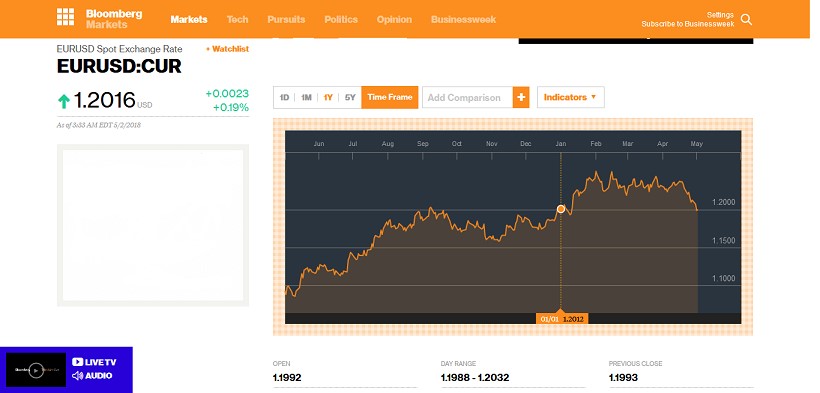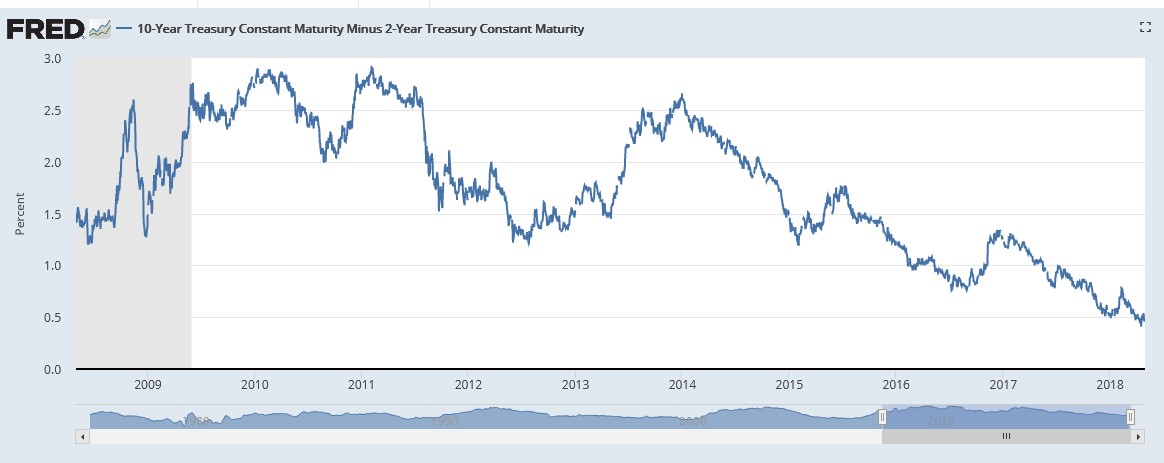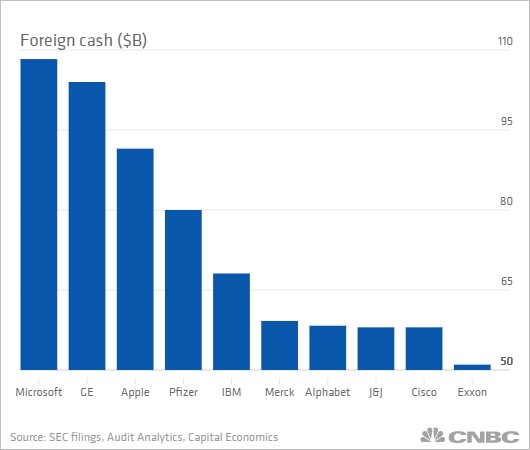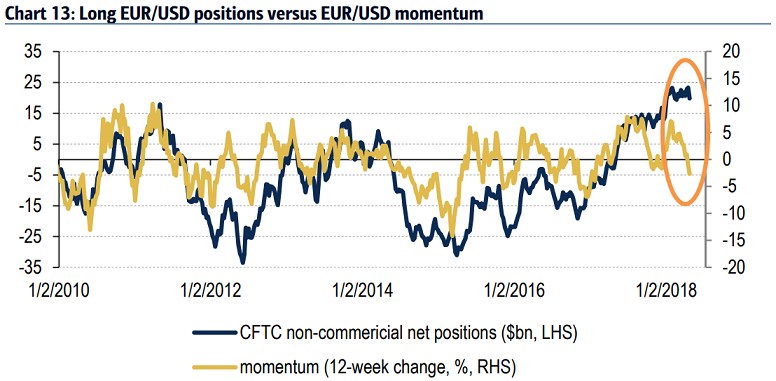The euro was the best performing major currency in 2017, appreciating 12 percent against its great nemesis, the American dollar, and hitting a 6-year high. That came against a backdrop of bearish expectations at the beginning of the year thanks to a confluence of several favorable factors including a weak greenback, ECB tapering and lower geopolitical risk in the Eurozone, among other reasons.
The shared currency's fairy tale run continued in the new year but only up to early February when it reversed course.
The euro has pulled back nearly 4 percent against the dollar over the past three months.

(Click to enlarge)
Source: Bloomberg
For euro bulls who still harbor hopes that the currency might pull off another surprise comeback … well, that might not be happening soon. Here's why:
#1 Yield Curve Favors Dollar
The U.S. yield curve has been flattening, with the current 0.46 differential reading between 10-and 2-year Treasuries a 10-year low.

(Click to enlarge)
Source: Federal Reserve Bank of St. Louis
Meanwhile, the eurozone yield curve has been getting steeper, a condition which juxtaposed with the U.S.' is bullish for the dollar. That's the case because foreign Treasury investments tend not to be currency-hedged compared with their eurozone peer thus weighing on the euro-dollar pair.
#2 New Trade Deals
The U.S., Canada and Mexico are expected a new NAFTA (North American Free Trade Agreement) deal in May; at least in principle. Further, Trump has instructed his economic advisers to evaluate ways for the country to re-enter the Trans-Pacific Partnership (TPP), a year after withdrawing from the pact. Related: This Billionaire Is Betting His Fortune On Gold
Although going through the motions of implementing Nafta 2.0 is likely to drag on to maybe year-end or even 2019, it would nevertheless signal willingness by Trump's administration to pursue favorable trade deals. That's bullish for the dollar.
#3 Repatriation Benefits
In the past, American companies have usually preferred to hold their overseas earnings in foreign accounts to avoid taking a huge 35-percent hit from the tax man when repatriating the funds stateside. The cash hoard has grown to an estimated $2.6 trillion pile.

(Click to enlarge)
Source: CNBC
But after a sweeping tax overhaul, these companies now have an incentive to bring back their money home. The exact effect this will have on FX is hard to quantify since it's possible that a good chunk of those foreign assets are already dollar-denominated.
Further, companies will have an 8-year window to do that, meaning we might not see chunky inflows by the greenback. Nevertheless, companies that do repatriate now have a strong incentive to lock-in rates right away.
#4 Capital Outflows in the Middle Kingdom
The second half of 2014 and early 2015 marked one of the strongest performance by the greenback in more than a decade, gaining 16 percent against a basket of the world's leading currencies.
A number of factors weighed in, including strong jobs growth as well as a boom in North American oil production that was accompanied by a crash in oil prices thus improving U.S.' trade balance.
Related: What's Behind Today's Cybercrime Explosion?
But perhaps one of the most underrated factors was the fact that the period coincided with significant capital outflows from China. China has been gingerly raising short-term rates to counter the Fed's moves, but would ultimately have to match it to avoid a repeat of 2015. Beijing's deleveraging drive, however, makes that tough call and the dollar is likely to come out on top, again.
#5 Loss of Euro Momentum
Last but not least, the day of reckoning is nigh when divergence between euro longs and dollar shorts will finally close down to reflect reality on the ground. This will inevitably push down the euro even deeper.
Euro long positions have remained high even as the currency continues to retreat, and a euro correction looks inevitable if history is any indication.

(Click to enlarge)
Source: Bloomberg
By Tom Kool for Safehaven.com
More Top Reads From Safehaven.com:
















